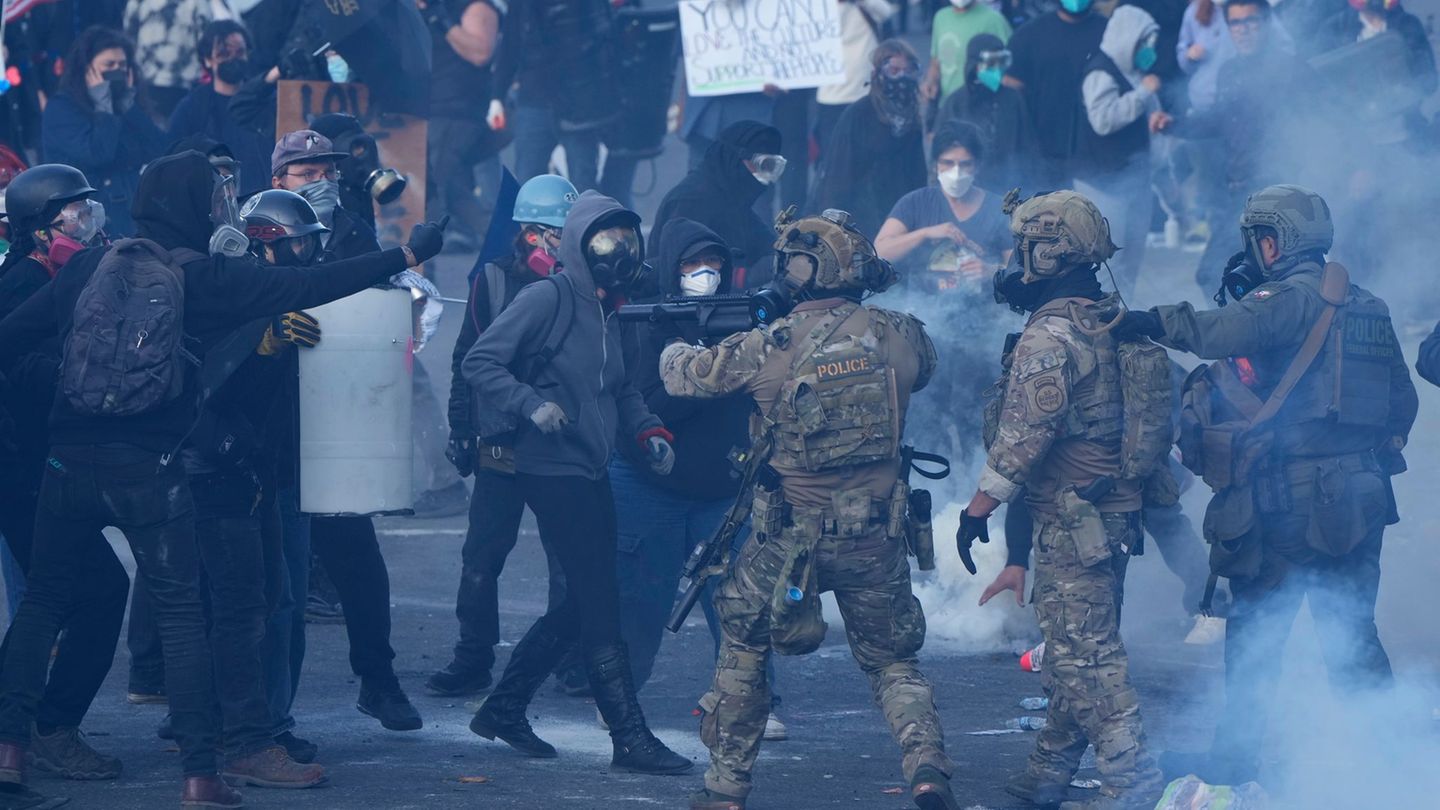Lars Eidinger can be seen in the political drama “Close Shot”. In an interview, he explains what memories the actor has of the GDR.
The Berlin Wall fell over 30 years ago and there are still some chapters in the history of the GDR that are not known to everyone. The political drama “Close Shot”, which starts in German cinemas on August 12, focuses on the life of Dr. Werner Teske. In 1981 he was the last person in the German Democratic Republic to be sentenced to death and executed.
Exceptional talent Lars Eidinger (45) shines in the main role. He plays the newly graduated Franz Walter, who works at the Ministry for State Security and is slowly falling apart. “I was 13 years old when the wall came down and it was a matter of course for me,” the actor, who was born and raised in West Berlin, looks back in an interview with the news agency spot on news.
What went through your head the first time you read the script for “Close Shot”?
Lars Eidinger: I decided on the film before I even read the script. I have Franziska Stünkel [Regie und Drehbuch] met in Hamburg because she wanted to tell me about a film project. She just told me the story and that already got me excited. That was three or four years ago and we’ve been in contact ever since. At some point she sent me the script and I found that sensational. It appeals to me when I play central characters about whom a whole story is told. I was really looking forward to empathizing with it and living it out. It was very enjoyable, very intensive work.
The film is based on the life story of Dr. Werner Teske ajar. He was the last execution victim in the GDR. Did you know about the death penalty in the GDR before the film?
Eidinger: I think hardly anyone knows that. Even Devid Striesow, who grew up in the GDR, didn’t know that. I think it’s important to show people that part of the story. But also what constraints lead to becoming part of this system at all. Often one is tempted retrospectively to say: I would have been in the resistance. But the film shows what constraints people were subjected to. You don’t want to spy on him, then your mother won’t have an operation. Who would resist that? It is not done out of malice, but out of compulsion. People impose these constraints on one another. Someone is put under pressure, who in turn does that with other people. It’s a mass movement. The majority were involved in this system. Few people could escape. After all, if you didn’t want to work for the State Security, you immediately fell out of favor. That’s an incredible amount of pressure.
You were born in West Berlin in 1976. What memories do you associate with the GDR?
Eidinger: Not as many as you would think. I was 13 years old when the wall came down and I took it for granted. I’ve never questioned the wall and couldn’t imagine that it would eventually stop standing. Since I grew up on the outskirts, she was always present. But beyond that there was only forest. I never cared what was behind it. Just seeing trees and being told how badly people are there doesn’t necessarily lead to interest. And that is an important point to be interested in the other system and in this other world. That you first try to understand what was actually going on. Without evaluating it and saying: one system was good and the other was bad.
So don’t you think that the system in the GDR was just bad?
Eidinger: I don’t think so. I was socialized far too much by the GDR for that. I studied at the Ernst Busch Academy for Dramatic Art in Schöneweide – it was a drama school in the GDR. I had my first engagement at the Deutsches Theater in Mitte. In other words, I am incredibly influenced by actors and lecturers who all lived in the GDR.
How do you feel about the fact that some people romanticize the GDR era?
Eidinger: I see a danger in trivializing. That the system is not taken seriously and that people pretend that only fools have worked in the state security. It is doing injustice to the people who have suffered under this system. So it’s important to show that the death penalty existed. People fell victim to this system. But that wasn’t all bad per se. I have far too much sympathy for the idea of communism or socialism for that. And my criticism of capitalism is far too big for that.
You mean it wasn’t all bad?
Eidinger: I recently worked with a makeup artist in Cologne. She fled the GDR. At that time she had still worked under Heiner Müller at the Berliner Ensemble. You and everyone else used a guest performance to flee – all the actors were gone before the premiere. I had the feeling that the woman was aware of the system and consciously fled – also from the thought of resistance. But she also talked about free love. It was tried in the West, it was lived in the GDR. They danced naked on the roofs above Prenzlauer Berg. Hence sentences like: It wasn’t that bad at all. Of course, people also had a good time. It wasn’t always just dreary in the GDR. That is way too easy to think.
I am a 24-year-old writer and journalist who has been working in the news industry for the past two years. I write primarily about market news, so if you’re looking for insights into what’s going on in the stock market or economic indicators, you’ve come to the right place. I also dabble in writing articles on lifestyle trends and pop culture news.




